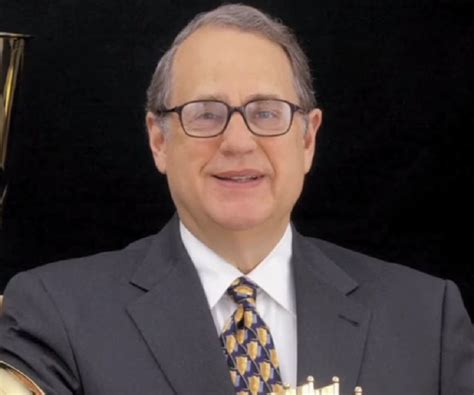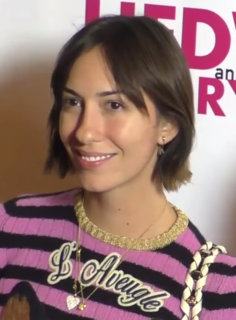A Quote by Richelle Mead
She laughed softly. "Therapy isn't so much about what I think as you do." "Then why do it at all?" "Because we don't always know what it is we're thinking or feeling. When you have a guide, it's easier to figure things out. You'll often discover that you already know what to do. I can help you ask questions and go places you mihgt not have on your own." "Well, you're good at the qujestion part." I noted dryly.
Related Quotes
I feel really strongly about not wanting to overly guide the reader about what he or she should think. I really trust the reader to know for themselves and not to need too much. You have your own imagination, your own experiences, your own feelings, and a novel wants ultimately to ask questions. It doesn't assert anything, or shouldn't, I think.
You cannot really be too concerned with what people think of you. You're on your own adventure of growth and discovery. So it's not always good to be who people think you are, especially if you subscribe to it as well ... which is easily done, because then you don't have to figure out who you are, you just ask somebody else.
If you want to do good research, it's important not to know too much. This almost sounds contradictory but really if you know too much and you get an idea, you will sort of talk yourself out of trying it because you figure it won't work. But if you know just the right amount and you get enthusiastic about your project, you go ahead, you do it and if you're lucky things'll work out.
I've always believed certain things: You treat everybody nicely because, more than anything, it's the right thing to do. And then you also never know when someone will be in position to help you or hurt you. I know I've gotten help from a lot of people who said good things about me because I treated them well.
I think it's much more interesting to live not knowing than to have answers which might be wrong. I have approximate answers, and possible beliefs, and different degrees of uncertainty about different things, but I am not absolutely sure of anything. There are many things I don't know anything about, such as whether it means anything to ask "Why are we here?" I might think about it a little bit, and if I can't figure it out then I go on to something else. But I don't have to know an answer. I don't feel frightened by not knowing things, by being lost in the mysterious universe without having any purpose - which is the way it really is, as far as I can tell.
Trying to do good to people without God's help is no easier than making the sun shine at midnight. You discover that you've got to abandon all your own preferences, your own bright ideas, and guide souls along the road our Lord has marked out for them. You mustn't coerce them into some path of your own choosing.
I won't call my work entertainment. It's exploring. It's asking questions of people, constantly. 'How much do you feel? How much do you know? Are you aware of this? Can you cope with this?' A good movie will ask you questions you don't already know the answers to. Why would I want to make a film about something I already understand?
If you put a much older woman in 'Doctor Who,' they can identify with it. I think it's quite an interesting concept, and if you remember things like 'Grimm's Fairytales,' the older woman is often the villainess, often the terrifying figure - why I do not know, but often she is. I think it's an idea to be exploited.
He read a lot. He used a lot of big words. I think maybe part of what got him into trouble was that he did too much thinking. Sometimes he tried too hard to make sense of the world, to figure out why people were bad to each other so often. A couple of times I tried to tell him it was a mistake to get too deep into that kind of stuff, but Alex got stuck on things. He always had to know the absolute right answer before he could go on to the next thing.
Whenever I'm giving talks, I always ask people to think of the most obscure questions because I enjoy those the most. I always get the same questions: Why does Pickwick say "plock" and will there be a movie? I like the really obscure questions because there's so much in the books. There are tons and tons of references and I like when people get the little ones and ask me about them. It's good for the audience [and also] they realize there's more there.
I think sometimes it's sort of easier to be playing a role based on a real person because there's quite often a lot more information, you're not making it up, it's there in books, it's there in research form. But really the questions you ask about the character, and why people behave, and where they come, and how they've ended up in the places they've ended up are the same.
For me, I felt bad for people asking the questions, cause you know their boss sent them out saying, 'Get me something on Mission Impossible.' And you ask the question, and it's just a polite, 'I'm not going to tell you.' Then, every so often, they'd go, 'Well, can't you just tell us a little bit?' I have to say, 'You know what guys, I'm under contract and I'm not going to tell you anything.' So you keep asking the questions and I'm just going to keep smiling. And it's hard, cause I don't want to seem rude, but it's part of my job just like it's part of their job to keep a secret.
Once you have grace," I said to him, "you are free. Without it, you cannot help doing the things you know you should not do, and that you know you don't really want to do. But once you have grace, you are free. When you are baptized, there is no power in existence that can force you to commit a sin-nothing that will be able to drive you to it against your own conscience. And if you merely will it, you will be free forever, because the strength will be given you, as much as you need, and as often as you ask, and as soon as you ask, and generally long before you ask for it, too.



































